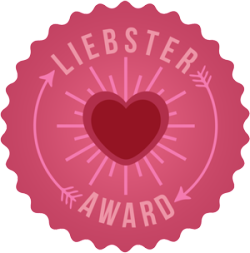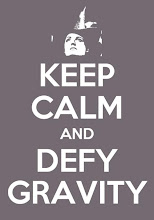
At some point in our lives, we will all resort to the "counting sheep" method as a potential cure for insomnia. I know I have. Although I have been a night owl since the day I was born, I never used to have trouble sleeping through the night, or even sleeping straight through the morning. Since coming down with POTS, however, I have stayed up for 72-hour stretches without a wink of sleep. On good nights I average about four hours of sleep per night on my own, which is definitely an inadequate amount.
I love sleep. Good quality, sleep-through-the-night, restorative sleep. It is something I daydream about quite often. I know that a good night's sleep is usually followed by a happier, more productive day. I have also found that when I sleep better at night I am less symptomatic the next day.
The question is, how do people with chronic illnesses achieve a good night's sleep without interruption from pain, heart palpitations or other nightly nuisances? There are several options, and at this point I have tried just about all of them. I saw a sleep specialist who diagnosed me with Initiation Insomnia and Maintenance Insomnia; basically that means I have trouble falling asleep and staying asleep for unknown reasons. I elected not to do the sleep study at the time because I literally wasn't sleeping at all, so they wouldn't have gotten an accurate reading. She prescribed several different sleep medicines to try, and only one of them actually made me fall asleep. I got a good 4-5 hours of sleep out of Zolpidem Tartrate, the generic form of old-fashioned Ambien. The extended release products like Ambien-CR and Lunesta did not make me sleep at all. Although I only actually slept 4-5 hours on the sleeping pill, I was still incredibly groggy and completely useless until about noon the next day, regardless of what time I had taken the sleeping pill the night before. My body was finally getting the sleep it so desperately needed, but I knew this could not be relied on as a long-term solution to my sleep ailments. So with the clearance of my sleep specialist and my pharmacist, I began cutting the tablets in half, and eventually into quarters until that was all I needed to sleep. Now I am not taking sleep aids at all and I feel much less groggy the next morning. I still have many nights where getting to sleep is difficult, if not impossible. But overall, I am doing better. I have established a relaxing routine before bedtime and I am diligent about sticking to it. If I get off course, sleeping becomes that much harder for me again.
Part of my nightly routine includes watching light, humorous shows a couple hours before bed to wind my mind down. I try not to watch anything too serious or violent that would potentially inhibit my ability to quiet my mind down. I then take a hot shower or bath to relax my muscles, eat a carbohydrate-laden snack like toast with peanut butter, and get into bed whenever I feel my eyes starting to get heavy. If I get into bed too soon, I lay there wide awake thinking about things or feeling bored. I try not to worry so much about the exact time I fall asleep anymore, but rather listen to my body's signals when it is telling me I am sleepy. It is better to condition yourself to sleep once you hit the pillow. If you spend too much time in bed laying awake trying to sleep, you subconsciously begin to associate your bed with feelings of frustration and sleeplessness. So if I am not quite tired enough to sleep, I lay on the floor or sit in a chair and read, surf the net, or watch television quietly until I am ready to retire to the bed. I avoid talking on the phone, listening to music, or exercising before bed because those are activities that hinder my ability to fall asleep.
The newest part of my sleep hygiene routine is the Sleep Sheep, a product designed to help babies fall asleep. For some reason my grandma was compelled to purchase one for me, and I'm glad she did. I probably would have never bought one for myself, but I humored her and gave it a try. To my surprise, the Sleep Sheep lulled me to a decent night's sleep. I don't know that I really fall asleep any faster, but I do have better quality sleep now because I wake up much less frequently throughout the night. There are four different soothing sound settings on the Sleep Sheep, including ocean waves, whales, rain, and a heartbeat (which is the only setting I did not find soothing at all). It has an adjustable volume setting, and will shut off automatically at a 23 or 45 minute interval. The Sleep Sheep is made by Cloud B, a company that makes a whole family of soothing stuffed animals designed to facilitate sleep. The Sleep Sheep is available at Pottery Barn and multiple online retailers.











